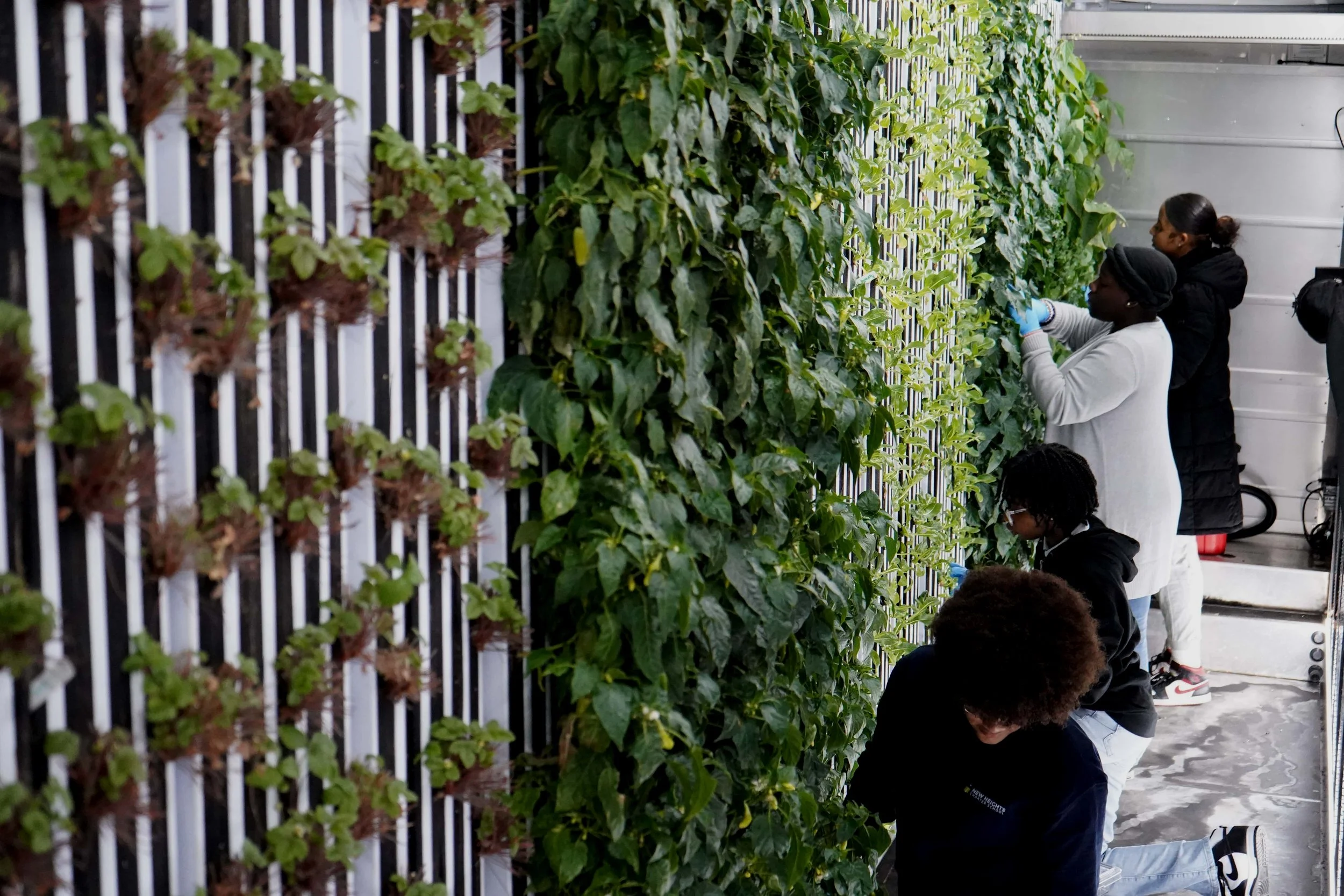5 Innovative Ways Universities are Transforming Campus Farming with Freight Farms
Universities across the country are revolutionizing campus sustainability and student engagement by integrating Freight Farms’ container farming solutions. These innovative farming methods are not only providing fresh, local produce but also enriching academic programs and fostering community involvement. Here are five impactful ways universities are leveraging Freight Farms to transform their campuses.
1. Container Farming Curriculum
At Saint Joseph’s College, the on-campus container farm has become a cornerstone of their Institute for Local Food Systems Innovation. The farm serves as a hands-on learning environment where students and community members alike are trained in sustainable agriculture practices, giving them a competitive edge in Maine’s growing food industry. The farm’s produce supplies the campus dining hall, providing fresh, locally grown greens while supporting the college’s broader sustainability goals.
2. Farming for School Sustainability
Maryville University, in partnership with Fresh Ideas Food Services, uses its container farm to advance its commitment to sustainability. By growing food on campus, Maryville not only provides fresh, nutrient-rich produce but also reduces its carbon footprint by minimizing food transportation. The farm is a key component of Maryville’s sustainability degree program and serves as a living lab for students interested in sustainable agriculture and environmental stewardship.
3. Direct from Farm to Dining Hall
Clark University’s collaboration with Sodexo has seamlessly integrated the Freight Farm into its dining services, enhancing the farm-to-table experience for students. The farm grows a variety of lettuces and herbs that are harvested just steps away from where they’re served, ensuring maximum freshness and flavor. This initiative not only supports Clark’s sustainability goals but also reduces the university’s reliance on external vendors, creating cost savings and a healthier campus dining experience.
4. Container Farm Café
The University of North Texas has taken campus farming to the next level by using its Freight Farm to supply its all-vegan dining concept, Mean Greens Café. The farm’s consistent output of fresh greens and herbs allows the café to operate as a true scratch kitchen, with most ingredients sourced just steps away from the dining area. This approach has not only elevated the dining experience for UNT students but also exemplified the potential of sustainable, hyper-local food systems.
5. Container Farming for Everything
Georgia State University’s Freight Farm serves as a hub for sustainability education, health, and wellness on campus. The student-run farm produces fresh greens and herbs for dining services while offering students valuable hands-on experience in agriculture and environmental science. The farm also serves as a platform for student employment and community engagement, making it a vital part of GSU’s sustainability initiatives.
Are you interested in starting a farming program on your campus?
Discover how Freight Farms can help you bring innovative, sustainable farming solutions to your university.










